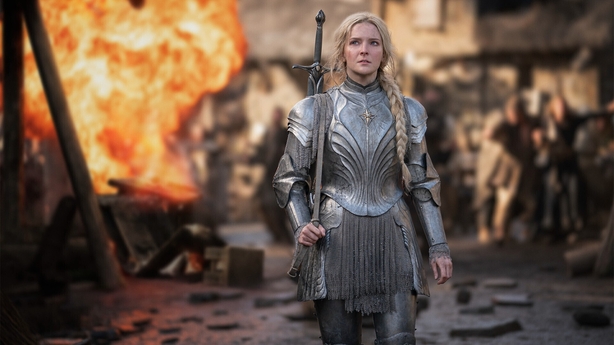One of my favourite things about being knee-deep in a really good book is that sense of escapism.
It sounds like a cliche; I mean, of course when you're truly ensconced in a story told by a talented author, you’re placing yourself in their world and allowing their characters to lead you along an unknown path. There is clearly an element of escaping the humdrum monotony of life found in any good novel.
I’ve read a lot of non-fiction books lately that have been brilliant and undoubtedly well-written, but some of them have felt like an extension of everyday life. There is a certain kind of joy to be found in pushing and pulling the springs of your imagination and letting a big fantasy novel envelop you. And no, I don’t mean Fifty Shades of Grey (never have and never will, in case you were wondering. No, not even the film.)
Fantasy is hardly a new genre, although it has gotten a bad rap over the years for not being 'literary’ enough to be taken seriously by bookos (the book equivalent of musos, FYI). These snobs have apparently never read Tolkien or Terry Pratchett, both masters of crafting the most fantastical stories using the most beautiful language. Pfft. Whatever. Their loss.

is the most expensive TV show ever
It seems to me that the appetite for adult-oriented (because we all know that the best kids’ books have the most bonkers storylines) fantasy novels has grown insatiable since George R.R. Martin’s A Song of Ice and Fire series was adapted for TV as Game of Thrones. There was definitely a turning point 10 or 15 years ago when such weighty doorstop tomes gained kudos and were moved from the dusty dark corners of bookshops to the front window.
I was speaking recently to a friend about Sarah J. Maas, the American author who has become a sensation in recent years largely thanks to her A Court of Thorns and Roses and Crescent City books. Still only 37, she has already notched up well over twenty novels spread across various series, and has sold over 12 million copies globally. I haven’t read any of them, but my curiosity was sufficiently piqued; a story about a young woman who is captured and taken to a mystical land by an immortal faerie? What’s not to like?
Watch: Meet 'ACOTAR' author Sarah J. Maas
it got me thinking about all of the other fantasy novels that I’ve adored as a reader over the years. One of my favourite childhood books was The Lion, the Witch and the Wardrobe and I lost count of the times I stepped into my grandad’s old fashioned dusty, mothball-laden wardrobe to check if the back was still solid (sad, but unfortunately true.) I discovered Philip Pullman’s His Dark Materials as a teenager and those three books genuinely changed the way I think. Even in recent years, other fantasy stories and series like Sally Green’s Half Bad, Suzanne Collins’ The Hunger Games, Phillip Reeves’ Mortal Engines and of course, the Harry Potter series have been both comforting and entertaining companions at various junctures.
As with commercial fiction, there is a tendency to dismiss fantasy novels as frivolous and throwaway, or books for kids, but there is no sign of the genre losing steam any time soon. I’m positive there’s a link between people’s desire to circumvent the increasingly crappy real world and the growth of the fantasy novel sector, but that’s a column for another day. For now, I’ll continue to seek out that deliciously satisfying sense of escapism in stories about parallel worlds, faeries, wizards, dragons, anthropomorphic lions and white walkers. Real life is hard enough, after all.

